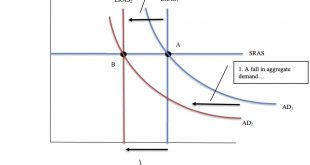WEA CommentariesVolume 10, Issue 3 – August 2020download the whole issue Human rights and fiscal policy: a necessary link – Grazielle David, Pedro Rossi, Sergio ChaparroMitja Stefancic interviews Guy Standing Pandemic Musings – Peter RadfordIs this the end of globalisation (as we know it)? – Karim Errouaki WEA Conference: Trade Wars After Coronavirus
Read More »It’s all on Trump
[unable to retrieve full-text content]The Post Office is Trump’s responsibility. He appointed the Postmaster General. If he had asked for more funding, he would have gotten it. If there is any delay in delivering ballots this November, it’s on Trump. The integrity of the election is on Trump. He runs the intelligence services and is responsible for preventing foreign […]
Read More »The two-party, one-ideology, neoliberal state
from Ikonoclast – Origianlly a comment on Are corporate CEOs worth $20 million? The time for nice debates alone is over. The time for voting and direct action to radically change our entire political economy has arrived. Debates, voting and direct action all have to operate in concert. Any one or two are powerless on their own. In a two-party, one-ideology state, where the wealth and power elites have captured the parties, voting on its own is useless. No matter who you vote for you still...
Read More »Open thread Sept. 1, 2020
[unable to retrieve full-text content]
Read More »Assessing the lockdown policy: a baseline comparison
Various people, mainly but not exclusively in the Murdoch Press, are still complaining about the cost of the lockdowns and other restrictions imposed to control the Covid-19 pandemic. But most of these people seem to think that, in the absence of the controls, we would have avoided the economic costs, without any additional deaths (or, for the more hard-nosed, with only some expendable old people who would have died soon anyway). So, I thought I’d fill the gap by doing a comparison of...
Read More »Hydrogen
It’s now clear that we have the technology we need to run a completely decarbonized electricity generation system. South Australia is the world leader[1] generating more than 50 per cent of its energy from renewable sources, and aiming for 100 per cent renewables by 2030. The unit cost of renewables is now well below that of carbon-based generation (and nuclear). The remaining big question regarding the economics of the transition is the cost of storage, taking account of the...
Read More »Are corporate CEOs worth $20 million?
from Dean Baker This simple and important question does not get anywhere near the attention it deserves. And, just to be clear, I don’t mean are they worth $20 million in any moral sense. I am asking a simple economics question; does the typical CEO of a major company add $20 million of value to the company that employs them or could they hire someone at, say one-tenth of this price ($2 million a year) who would do just as much for the company’s bottom line? This matters not only because...
Read More »Mainstream macroeconomics—pandemic edition
from David Ruccio Right now, the United States is mired in an economic depression, the Pandemic Depression, not dissimilar to what happened in the 1930s and again after the crash of 2007-08. Real (inflation-adjusted) gross domestic product contracted by an annual rate of 31.7 percent in the second quarter of 2020 (according to the Bureau of Economic Analysis) and at least 27 million American workers are currently unemployed (counting workers continuing to receive some kind of unemployment...
Read More »Rethinking public debt
from Lars Syll Public debt is normally — as emphasized again and again by MMT economists — nothing to fear, especially if it is financed within the country itself (but even foreign loans can be beneficent for the economy if invested in the right way). Some members of society hold bonds and earn interest on them, while others pay taxes that ultimately pay the interest on the debt. The debt is not a net burden for society as a whole since the debt ‘cancels’ itself out between the two...
Read More » Heterodox
Heterodox


